BMW X5 vs VW Passat - Differences and prices compared
Costs and Efficiency:
Price and efficiency are often the first things buyers look at. Here it becomes clear which model has the long-term edge – whether at the pump, the plug, or in purchase price.
VW Passat has a clearly advantage in terms of price – it starts at 35700 £, while the BMW X5 costs 77100 £. That’s a price difference of around 41323 £.
Fuel consumption also shows a difference: VW Passat manages with 1.20 L and is therefore clearly more efficient than the BMW X5 with 3 L. The difference is about 1.80 L per 100 km.
As for range, the VW Passat performs distinct better – achieving up to 135 km, about 30 km more than the BMW X5.
Engine and Performance:
Power, torque and acceleration are the classic benchmarks for car enthusiasts – and here, some clear differences start to show.
When it comes to engine power, the BMW X5 has a convincingly edge – offering 625 HP compared to 272 HP. That’s roughly 353 HP more horsepower.
In acceleration from 0 to 100 km/h, the BMW X5 is significantly quicker – completing the sprint in 3.90 s, while the VW Passat takes 5.80 s. That’s about 1.90 s faster.
In terms of top speed, the performs better – reaching , while the tops out at . The difference is around .
There’s also a difference in torque: BMW X5 pulls significantly stronger with 750 Nm compared to 400 Nm. That’s about 350 Nm difference.
Space and Everyday Use:
Beyond pure performance, interior space and usability matter most in daily life. This is where you see which car is more practical and versatile.
Seats: offers more seating capacity – vs .
In curb weight, VW Passat is significantly lighter – 1573 kg compared to 2240 kg. The difference is around 667 kg.
In terms of boot space, the VW Passat offers slight more room – 690 L compared to 650 L. That’s a difference of about 40 L.
In maximum load capacity, the VW Passat performs hardly perceptible better – up to 1920 L, which is about 50 L more than the BMW X5.
When it comes to payload, BMW X5 a bit takes the win – 705 kg compared to 577 kg. That’s a difference of about 128 kg.
Who wins the race?
The VW Passat proves to be wins the duel decisively and therefore becomes our DriveDuel Champion!
VW Passat is the better all-rounder in this comparison.
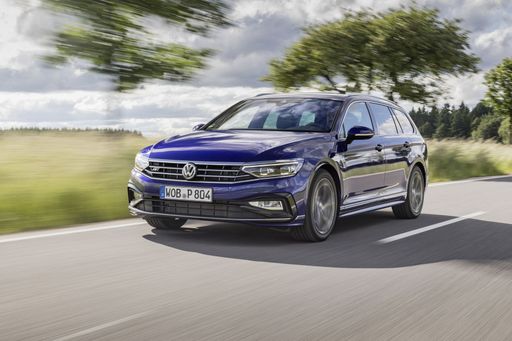 @ Volkswagen AG / VW Media
@ Volkswagen AG / VW Media
VW Passat
Costs and Consumption
View detailed analysis
Engine and Performance
View detailed analysis
Dimensions and Body
View detailed analysis
BMW X5
The BMW X5 blends athletic handling with a roomy, premium interior, feeling equally at home on twisty country roads and the school-run car park. Its executive-lounge cabin and confident road presence make it a tempting choice for buyers who want comfort, capability and just a little bit of bragging rights.
details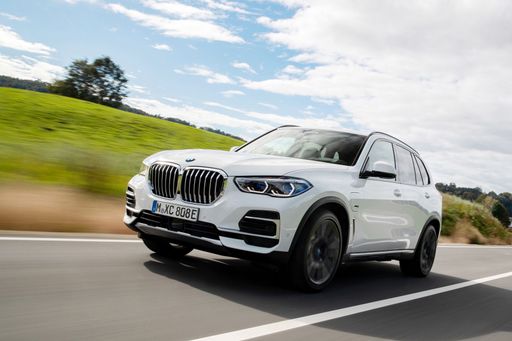 @ BMW Group Press
@ BMW Group Press
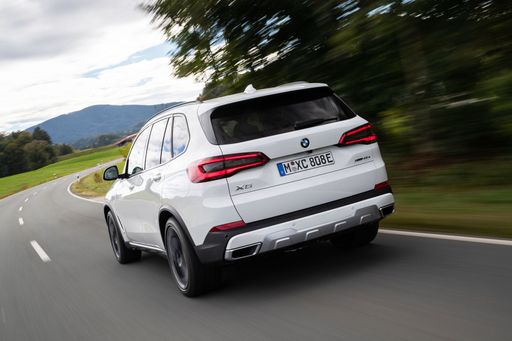 @ BMW Group Press
@ BMW Group Press
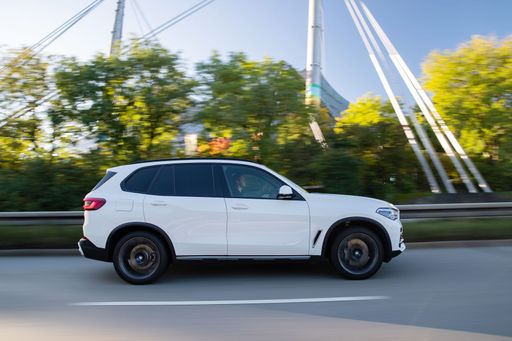 @ BMW Group Press
@ BMW Group Press
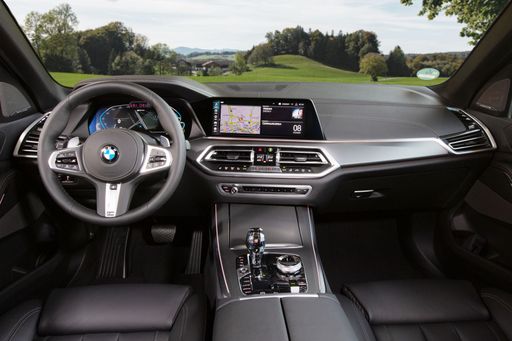 @ BMW Group Press
@ BMW Group Press
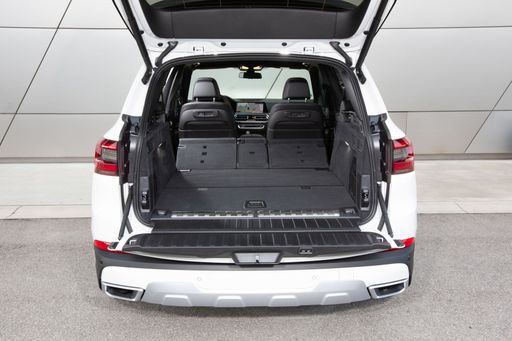 @ BMW Group Press
@ BMW Group Press
VW Passat
The VW Passat is the grown-up family car that gets the basics absolutely right — roomy, comfortable and built to handle weekday commutes and weekend getaways without fuss. It won't set your pulse racing, but its calm composure and sensible packaging make it boring in the best possible way: a dependable, no‑drama choice for buyers who value practicality over flash.
details @ Volkswagen AG / VW Media
@ Volkswagen AG / VW Media
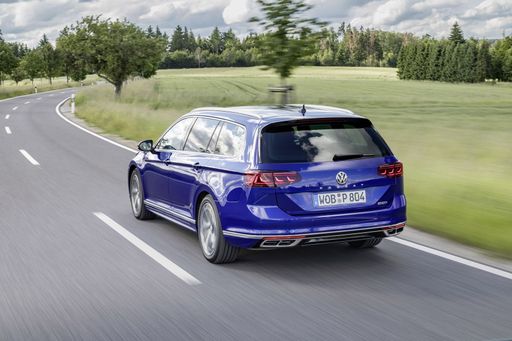 @ Volkswagen AG / VW Media
@ Volkswagen AG / VW Media
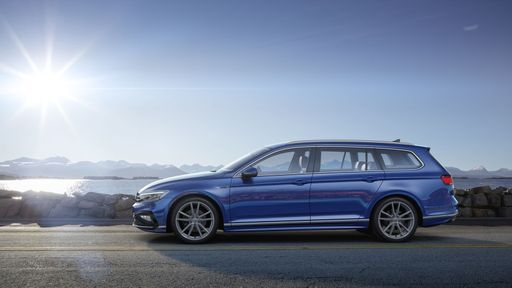 @ Volkswagen AG / VW Media
@ Volkswagen AG / VW Media
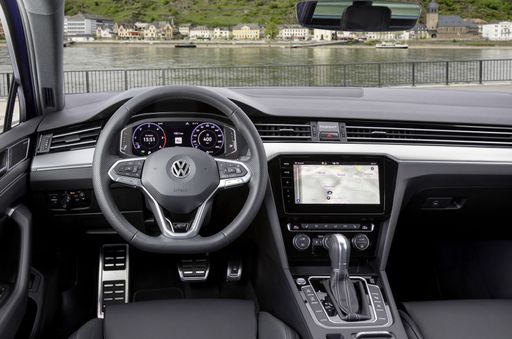 @ Volkswagen AG / VW Media
@ Volkswagen AG / VW Media
 @ BMW Group Press
@ BMW Group Press
|
 @ Volkswagen AG / VW Media
@ Volkswagen AG / VW Media
|
|
|
|
Costs and Consumption |
|
|---|---|
|
Price
77100 - 143500 £
|
Price
35700 - 58500 £
|
|
Consumption L/100km
3 - 12.8 L
|
Consumption L/100km
1.2 - 8 L
|
|
Consumption kWh/100km
-
|
Consumption kWh/100km
-
|
|
Electric Range
105 km
|
Electric Range
124 - 135 km
|
|
Battery Capacity
25.70 kWh
|
Battery Capacity
19.70 kWh
|
|
co2
68 - 289 g/km
|
co2
28 - 181 g/km
|
|
Fuel tank capacity
69 - 83 L
|
Fuel tank capacity
45 - 66 L
|
Dimensions and Body |
|
|---|---|
|
Body Type
SUV
|
Body Type
Estate
|
|
Seats
5
|
Seats
5
|
|
Doors
5
|
Doors
5
|
|
Curb weight
2240 - 2495 kg
|
Curb weight
1573 - 1858 kg
|
|
Trunk capacity
500 - 650 L
|
Trunk capacity
510 - 690 L
|
|
Length
4935 - 4948 mm
|
Length
4917 mm
|
|
Width
2004 - 2015 mm
|
Width
1849 mm
|
|
Height
1755 - 1765 mm
|
Height
1521 mm
|
|
Max trunk capacity
1720 - 1870 L
|
Max trunk capacity
1770 - 1920 L
|
|
Payload
565 - 705 kg
|
Payload
501 - 577 kg
|
Engine and Performance |
|
|---|---|
|
Engine Type
Petrol MHEV, Diesel MHEV, Plugin Hybrid
|
Engine Type
Petrol, Petrol MHEV, Diesel, Plugin Hybrid
|
|
Transmission
Automatic
|
Transmission
Automatic
|
|
Transmission Detail
Automatic Gearbox
|
Transmission Detail
Dual-Clutch Automatic
|
|
Drive Type
All-Wheel Drive
|
Drive Type
All-Wheel Drive, Front-Wheel Drive
|
|
Power HP
298 - 625 HP
|
Power HP
122 - 272 HP
|
|
Acceleration 0-100km/h
3.9 - 6.1 s
|
Acceleration 0-100km/h
5.8 - 10.7 s
|
|
Max Speed
233 - 250 km/h
|
Max Speed
212 - 250 km/h
|
|
Torque
540 - 750 Nm
|
Torque
250 - 400 Nm
|
|
Number of Cylinders
6 - 8
|
Number of Cylinders
4
|
|
Power kW
219 - 460 kW
|
Power kW
90 - 200 kW
|
|
Engine capacity
2993 - 4395 cm3
|
Engine capacity
1498 - 1984 cm3
|
General |
|
|---|---|
|
Model Year
2025
|
Model Year
2024 - 2025
|
|
CO2 Efficiency Class
G, B
|
CO2 Efficiency Class
G, D, E, B
|
|
Brand
BMW
|
Brand
VW
|
Is the BMW X5 offered with different drivetrains?
The BMW X5 is available as All-Wheel Drive.
The prices and data displayed are estimates based on German list prices and may vary by country. This information is not legally binding.
